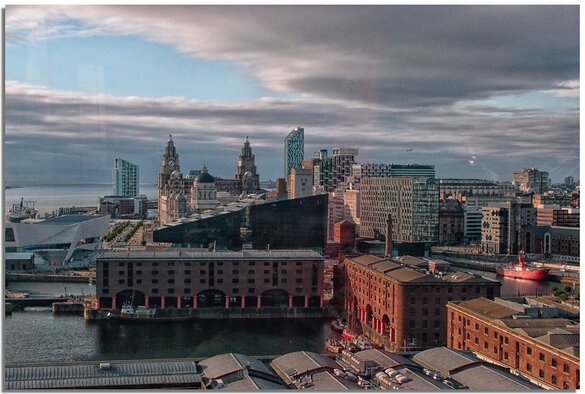The University of Liverpool’s Heseltine Institute for Public Policy, Practice and Place has joined forces with World Heritage UK to host an online conference a year on from UNESCO’s decision to strip Liverpool of its World Heritage status.
The conference, on Thursday June 23, will see major speakers from key regional, national and international stakeholders consider the very real tensions between conservation and regeneration; the responsibilities and consequences of inscription; and the importance of effective communication between UNESCO, municipalities, state parties and other bodies.
Heseltine Institute Ambassador, Professor Michael Parkinson CBE is a member of the Liverpool Mayoral Task Force on World Heritage and internationally regarded expert on urban regeneration.
Professor Parkinson said: “‘The Heseltine Institute is delighted to partner with World Heritage UK for this important conference.
“Liverpool lost its UNESCO World Heritage status one year ago. Now is the right time to reflect on what happened, to find out how the city has responded and how it will reconcile development, heritage and conservation in future.
“Our group of senior international, national and local speakers will provide important perspectives on these crucial questions.”
World Heritage UK Chair of the Board of Trustees, Tony Crouch said: “World Heritage UK deeply regrets the decision by UNESCO’s World Heritage Committee to delist Liverpool.
“Liverpool is a key part of our island story.
“It is still globally recognised as one of the world’s major trading centres in the 18th and 19th centuries, and a pioneer of dock technology, transport systems and port management.
“Since inscription in 2006, World Heritage status made a substantial contribution to conservation and regeneration of the city centre. Sadly, this was deemed not enough. This conference is a good opportunity to share the lessons learnt.”
The Heseltine Institute’s Professor Ian Wray is Vice Chair of World Heritage UK, he said: “Liverpool was very sorry to lose its World Heritage status, but we now need to look to the future positively.
“All the assets which gave the city its world status are still here and many are in much better condition than when the World Heritage Site was inscribed in 2004.
“We need to think about how they can best be managed for future generations and that is the theme of our conference.”
The Liverpool – After World Heritage online conference runs from 10.30am to 4.30pm on June 23. For more information, and to book your space, please visit: https://worldheritageuk.org/events/liverpool-one-year-on/
